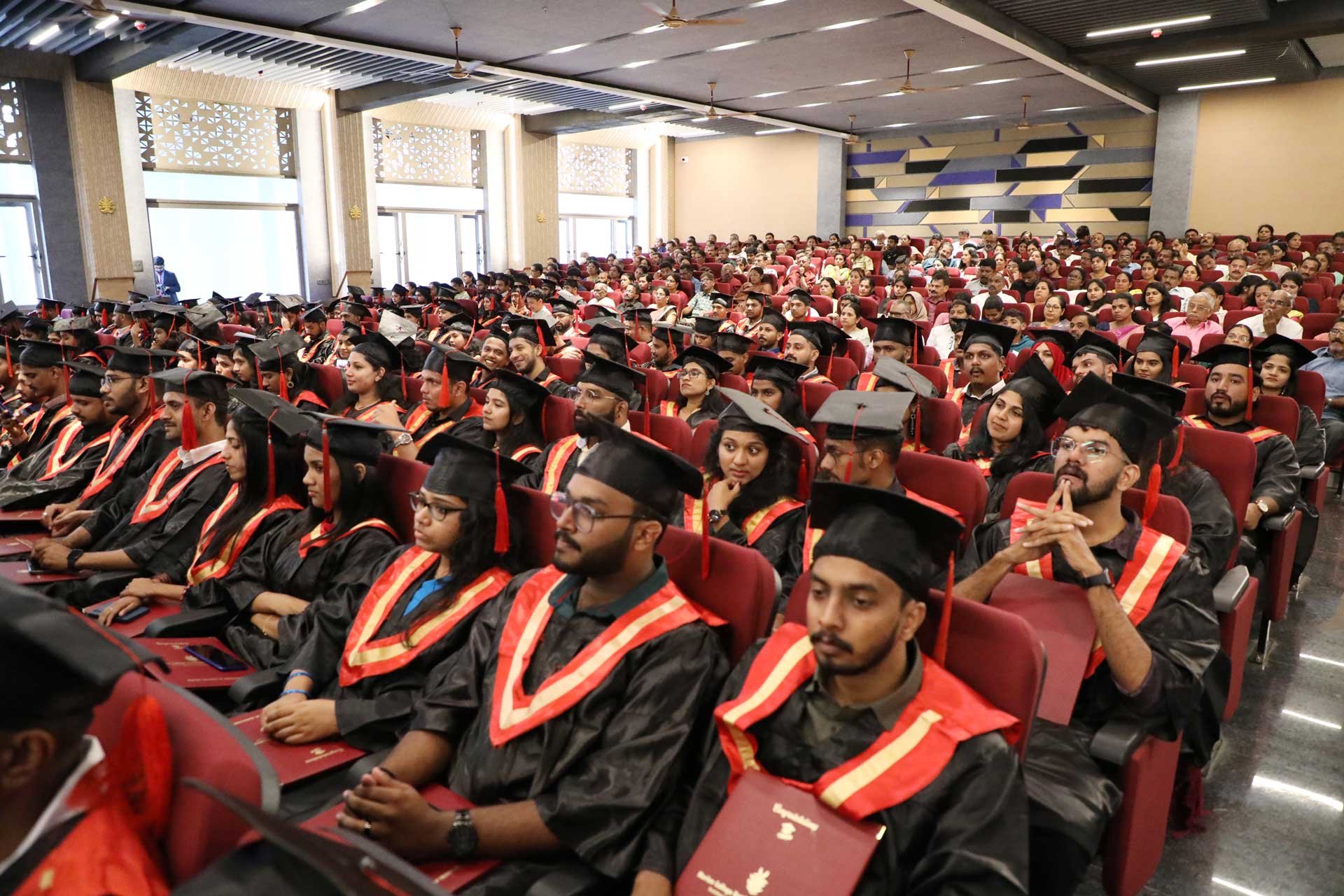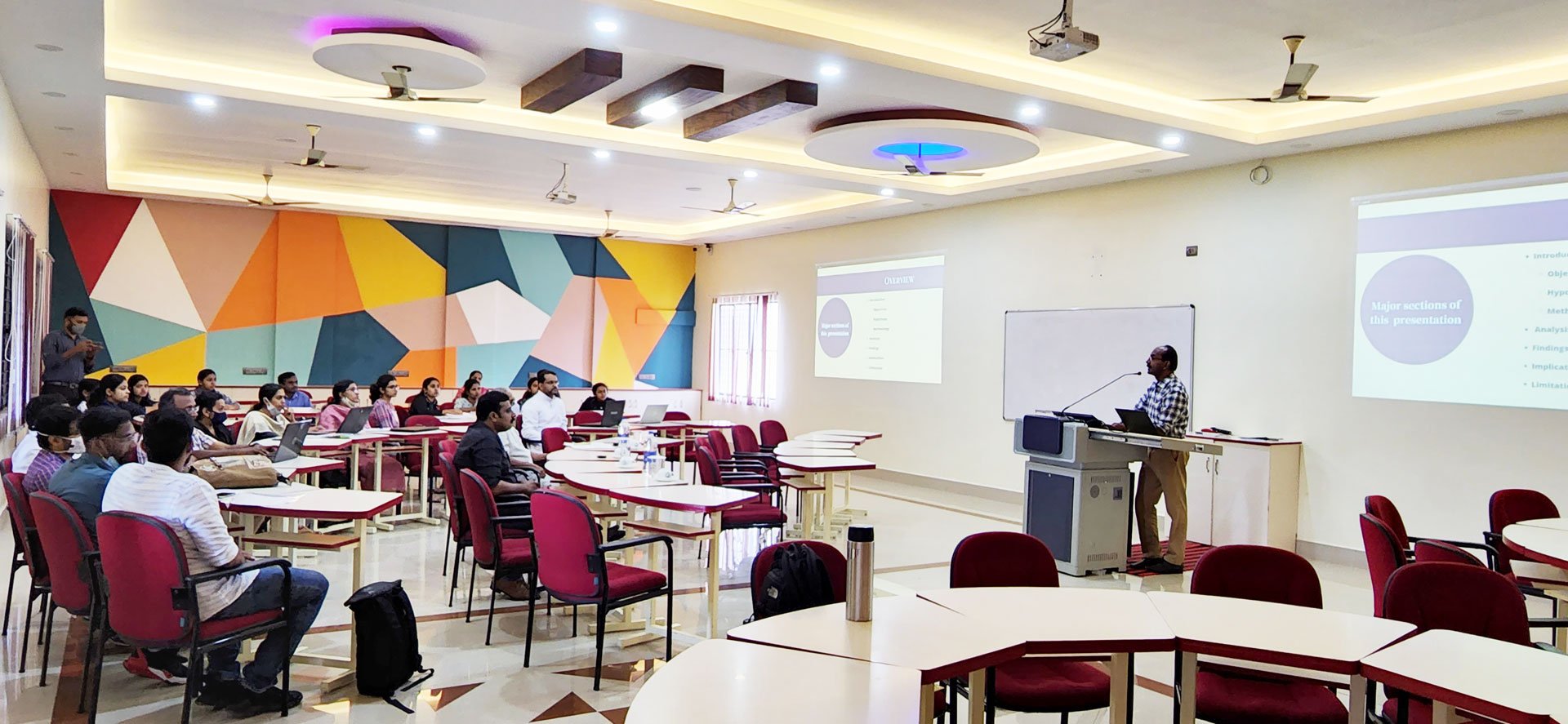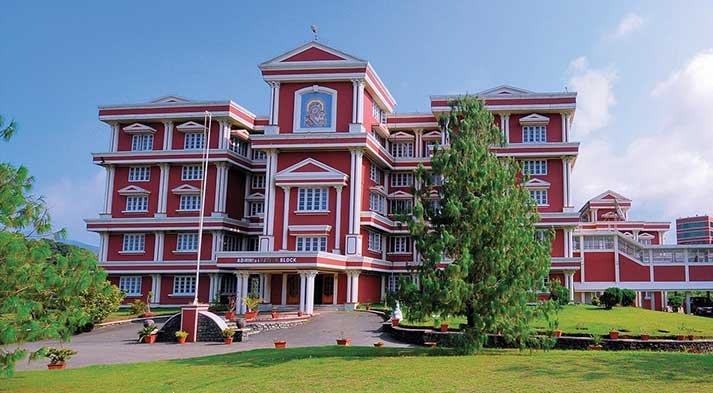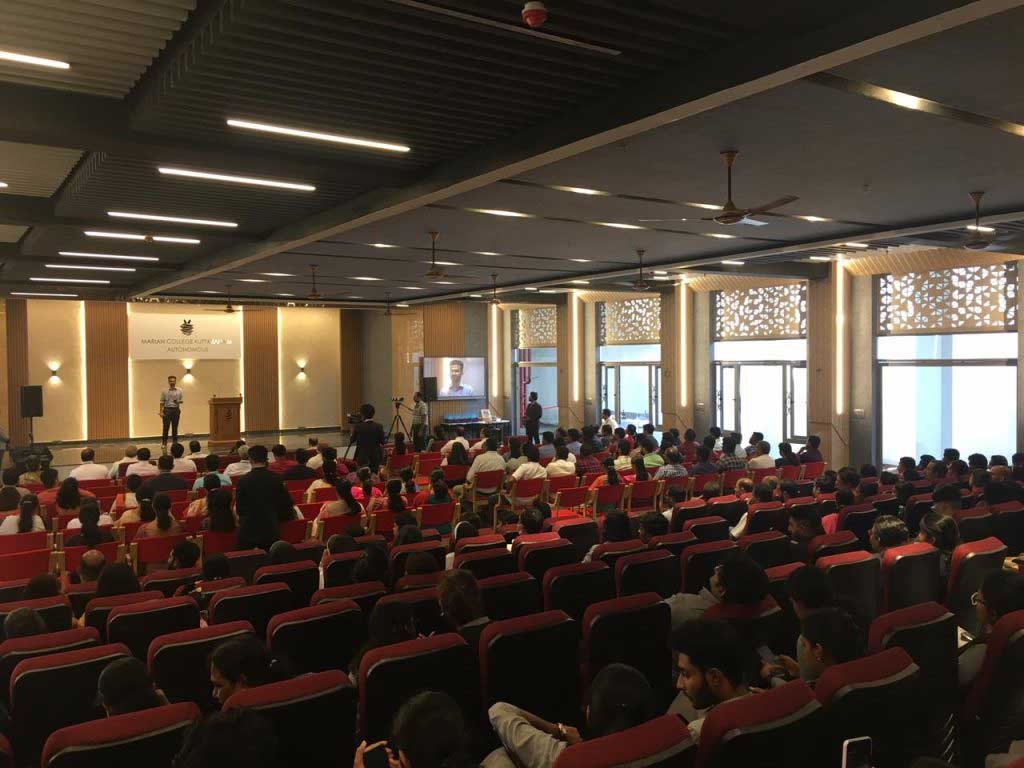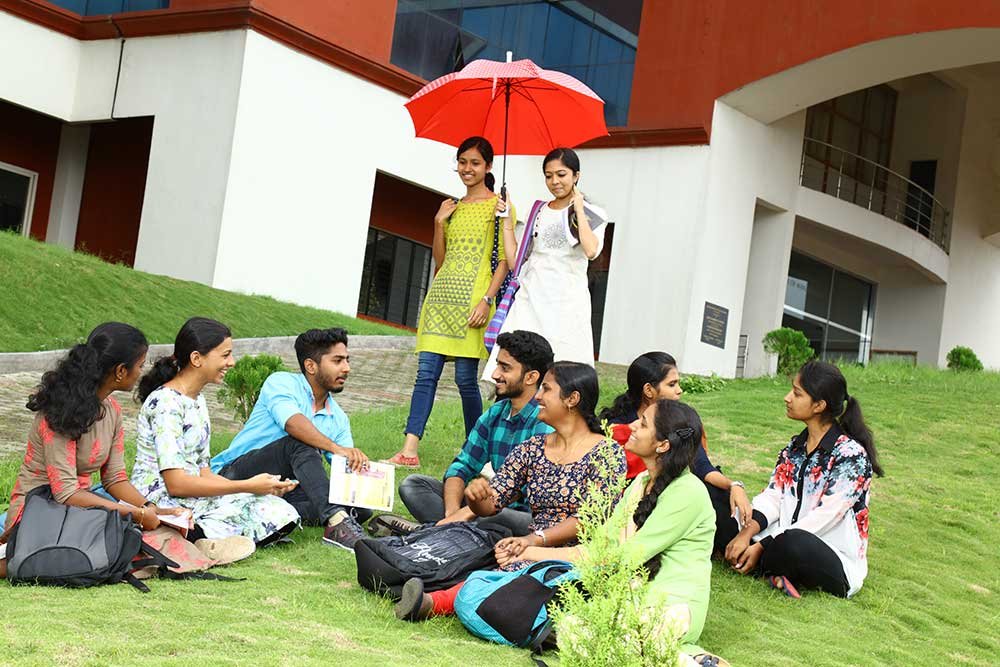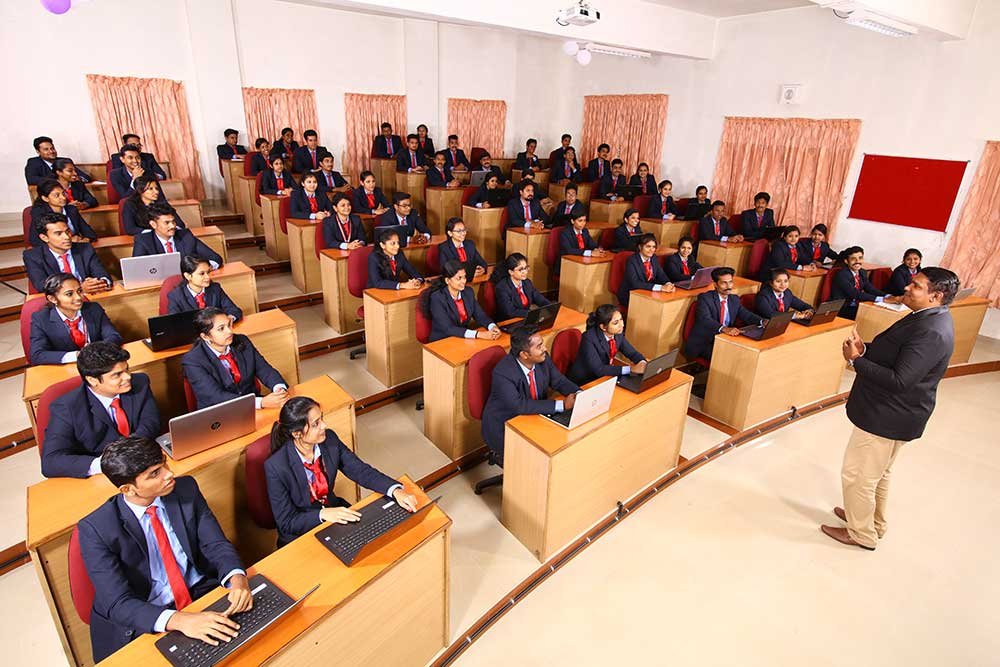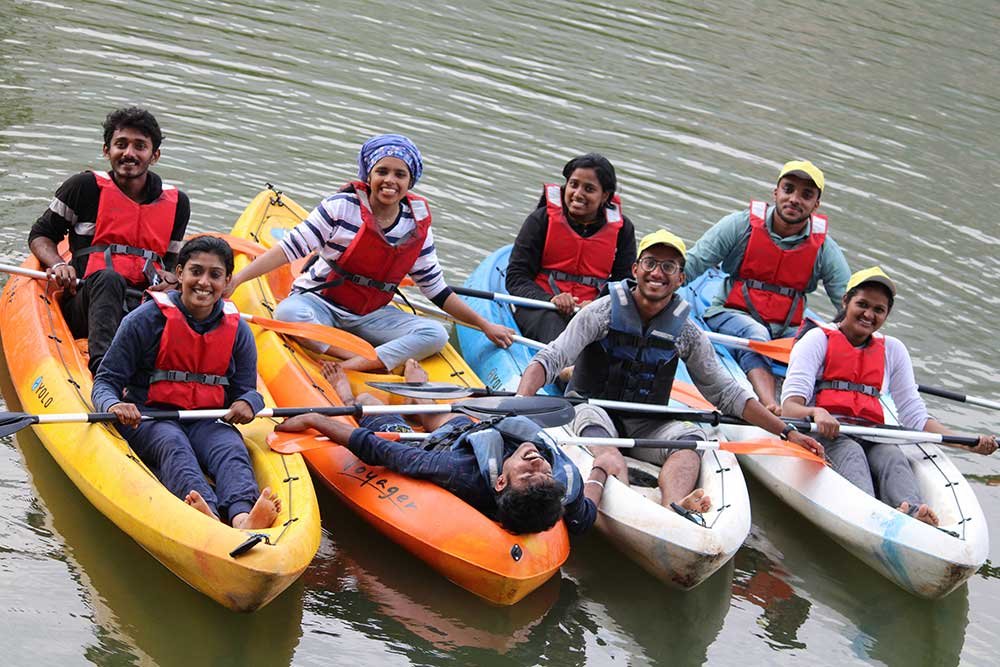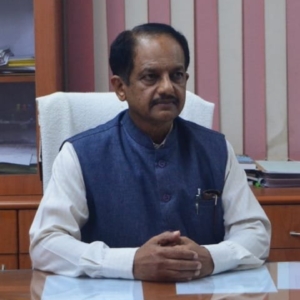| Dr. Preeti Aagneya alias Avani Bharadwaj |
Adjunct Faculty |
Amity University Jharkhand, India |
| Aanchal Amitabh |
Adjunct Professor |
Master School of Management, India |
| Albulena |
Assistant Professor |
University of Prishtina, Kosovo |
| Dr Ziavuddeen |
Assistant Professor |
B S Abdur Rahman Crescent Institute of Science and Technology, India |
| Shamaila Butt |
Assisstant Professor |
Sohar University, Oman |
| Manoj Kumar Mishra |
Assistance Professor |
Marwadi university, India |
| Arijit Mishra |
Assistant Controller of Examinations |
Motherhood University , India |
| Dr. Anitha k |
Assistant Director, centre for online education |
Meenakshi Academy of Higher Education & Research, India |
| SABARMATHI G |
Assistant Professor |
CHRIST University, India |
| Shashi Bala Rai |
Assistant Professor |
Panipat Institute of Engineering & Technology, India |
| Shashi Bala Rai |
Assistant Professor |
Panipat Institute of Engineering & Technology, Panipat, India |
| SHRUTHI S V |
Assistant Professor |
Dayananda Sagar University, India |
| DR. K. KOPPIAHRAJ |
Assistant Professor |
Saveetha Institute of Medical and Technical Sciences, India |
| Subhrodipto Basu Choudhury |
Assistant Professor |
ISMS Sankalp Business School, India |
| Dr. Tahamina Yesmin |
Assistant Professor |
Adamas University, India |
| Dr.Nikita Nille |
Assistant Professor |
G H Raisoni College Of Engineering & Management, Wagholi, India |
| Dr. Pallavi Kiran |
Assistant Professor |
Bennett University, India |
| Dr. Shivani Saini |
Assistant Professor |
University School of Business, Chandigarh University, India |
| Debapriya Ganguly |
Assistant Professor |
Graphic Era University, India |
| Suthagar S |
Assistant professor |
Kongu engineering college, India |
| Dr Praveen Kumar T D |
Assistant Professor |
Doctor Harisingh Gour Vishwavidyalaya (A Central University), India |
| Nikhat Mushir |
Assistant Professor |
KR Mangalam University, India |
| Dr. Subair Kalathil |
Assistant Professor |
Parul University, India |
| Bhawana Bhardwaj |
Assistant Professor |
Central University of HP india, India |
| Dr. M.S. Suganthiya |
Assistant Professor |
Amity Business School, Amity University, Mumbai., India |
| Dr. Sasikanta Tripathy |
Assistant Professor |
University of Bahrain, Bahrain |
| Dr.K.Geetha |
Assistant Professor |
Madanapalle Institute of technology and science, India |
| Dr. Apoorva Juneja |
Assistant Professor |
IIMS, Pune, India |
| Charu Maheshwari |
Assistant Professor |
Anna Adarsh College for Women (Autonomous), India |
| Dr yasir afaq |
Assistant professor |
Lovely Professional University, India |
| Adarsh Kumar |
Assistant Professor |
IEC College Of Engineering & Technology Greater Noida, India |
| Dr. Syama u s |
Assistant professor |
Kristujayanti college Bangalore, India |
| Anandhabalaji V |
Assistant Professor |
SRM Institute of Science and Technology, Kattankulathur, Tamil Nadu, India., INDIA |
| Dr. Neha Gupta |
Assistant Professor |
Bharati Vidyapeeth (Deemed to be university), India |
| Samriddhya Ray Chowdhury |
Assistant Professor |
Budge Budge Institute ofTechnology, Kolkata, India, India |
| sagarika |
ASSISTANT PROFESSOR |
PATNA WOMEN'S COLLEGE (AUTONOMOUS), INDIA |
| Mayura Nagar |
Assistant Professor |
K. J. Somaiya Institute of Management, India |
| Dr. Jaydipkumar D Pandya |
Assistant Professor |
Surendranagar University Gujarat, India |
| N Shradha Varma |
Assistant Professor |
University of Delhi, India |
| Dr. ANKUR PRIYADARSHI |
ASSISTANT PROFESSOR |
SAHARSA COLLEGE OF ENGINEERING, GOVT. Of Bihar, INDIA |
| Dr. Saket Kumar |
Assistant Professor |
Dronacharya Group of Institutions , India |
| Dr Manoj Mathew |
Assistant Professor |
Kalinga University, India |
| Dr.Sruthi Vijayakrishnan |
Assistant Professor |
DC School of Management and technology, Vagamon, India |
| Dr D Asokk |
Assistant Professor |
Sri Ramachandra Institute of Higher Education & Research, India |
| Dr. Apoorva Juneja |
Assistant Professor |
IIMS, Pune, India |
| Jyotir Moy Chatterjee |
Assistant Professor |
Graphic Era University, India |
| Dr. Fedric Kujur |
Assistant Professor |
Xavier Institute of Social Service (XISS) Ranchi, India |
| Sourav Mondal |
Assistant professor |
IIM Jammu, India |
| Dr. Sthitipragyan Biswal |
Assistant Professor |
Symbiosis School of Banking and Finance, Symbiosis International (Deemed University), India |
| Dr. Fedric Kujur |
Assistant Professor |
Xavier Institute of Social Service (XISS) Ranchi, India |
| Dr.Parwinder Kaur |
Assistant Professor |
CT University, India |
| Dr. Gajanan Uttam Patil |
Assistant Professor |
HSM'S, SSGBCOE&T, BHUSAWAL, India |
| Dr. Veerendra Anchan |
Assistant Professor |
NMIMS UNIVERSITY , India |
| RAJKUMAR YESURAJ |
Assistant Professor |
Vellore Institute of Technology-Andhra Pradesh, India |
| Dr Shivani Gupta |
Assistant Professor |
Punjab Engineering College, India |
| Dr. Fazeelath Tabassum |
Assistant Professor |
School of Management Studies, REVA UNIVERSITY , India |
| Rachit Agarwal |
Assistant Professor |
Chandigarh University, India |
| Dr. Manisha Prakash |
Assistant Professor |
School of Journalism and Mass Communication, Aryabhatta Knowledge University, Patna, India |
| Abhijith R. |
Assistant Professor |
CET School of Management, College of Engineering Trivandrum , India |
| Nurcan Kilinc-Ata |
Assistant Professor |
Sultan Qaboos University, Oman |
| Dr. Hena M |
Assistant Professor |
Presidency University, India |
| Dr Nithyanandh Selvam |
Assistant Professor |
PSG College of Arts & Science, India |
| Dr. Jagriti Anand |
Assistant Professor |
Patliputra University , India |
| Sreekanth V K |
Assistant Professor |
National Institute of Technology Calicut , India |
| Dr Nidhi Khurana |
Assistant Professor |
St Aloysius College , Jabalpur |
| SILPA A PRASAD |
Assistant Professor |
Sree Narayana Guru College of Legal Studies, Kollam, Kerala , India |
| Dr. Kirti Aggarwal |
Assistant Professor |
Vaish College of Engineering, Rohtak, India |
| Natraj |
Assistant Professor |
Symbiosis International University , India |
| Dr. Aparna Ger |
Assistant Professor |
Amity Global Business School , India |
| EMIMANIMCY M |
Assistant professor |
Kumaraguru College of Liberal Arts and Science , India |
| Dr. Nitu Maurya |
Assistant Professor |
IILM University, Greater Noida , India |
| Supriya Singh |
Assistant Professor |
Karnavati University , India |
| Prof. (Dr.). Santosh Raghunath Gaikwad |
Assistant Professor |
MET Institute of Management, Nashik , India |
| Dr. M. Manjula |
Assistant professor |
Dr.NGP Arts and Science college , India |
| Senthil Kumar J |
Assistant Professor |
KIT-KALAIGNARKARUNANIDHI INSTITUTE OF TECHNOLOGY, India |
| Pankaj Singh Chandel |
Assistant Professor |
AAFT University of Media and Arts , India |
| Dr. Priti Sharma |
Assistant Professor |
FORE Academy of Management Education (FAME), Gurugram , India |
| Dr. Sreeramulu Gosikonda |
Assistant Professor |
Banaras Hindu University , India |
| Rajesh Kanna R |
Assistant Professor |
Christ University , India |
| Mohit Verma |
Assistant Professor |
O.P. Jindal Global University , India |
| Dr. J. Pavithra |
Assistant Professor |
SRM Institute of Science and Technology , India |
| Prabakaran Vijayan |
Assistant Professor |
University of Technology and Applied Sciences, Nizwa branch , India |
| Dr. S. Kulothunga Pandian |
Assistant Professor |
Sri Kaliswari College, Sivakasi , India |
| Dr Harpreet Kaur |
Assistant Professor |
CHRIST (Deemed to be University), India |
| Dr. Sarmila Paul |
Assistant Professor |
Rani Birla Girls' College, Kolkata, India , India |
| Dr.R.S.V.Rama Swathi |
Assistant Professor |
KLEF KL(DEEMED TO BE UNIVERSITY), India |
| Dr. Madhuparna Bhattacharya |
Assistant Professor |
Falakata College(under University of North Bengal) , India |
| Dr S Gayathri, Post Doctoral Fellow |
Assistant Professor |
Ethiraj College for Women , India |
| Rupam Dhani |
Assistant Professor |
Brainware University , India |
| G.SIVA BRINDHA |
Assistant Professor |
Hindusthan College of Arts & Science(Autonomous), India |
| Mayur Bhoyar |
Assistant Professor |
JCOET YAVATMAL, India |
| Dr. Bala Murugan D |
Assistant Professor |
Vels Institute of Science, Technology & Advanced Studies , India |
| Sherry Ritha Antony |
Assistant Professor |
St Berchmans College , India |
| Dr Bilal Ahmad Pandow |
Assistant Professor |
Bahrain Polytechnic , Bahrain |
| Pawan Kumar |
Assistant Professor |
SRM University Delhi NCR Sonepat Haryana India , India |
| Dr. Nazia Hasan |
Assistant Professor |
TMIMT, TEERTHANKER MAHAVEER UNIVERSITY , India |
| Niranchana shri viswanathan |
Assistant professor |
Sapthagiri nps university , India |
| Dr. Pooja yadav |
Assistant professor |
BABU BANARASI DAS UNIVERSITY , India |
| Dr Ramneek Kelsang Bawa |
Assistant Professor |
School of Business Management, Noida International University , Infia |
| Manish Kumar sharma |
Assistant Professor |
IIT Kharagpur and MIT WPU , India |
| Dr Afreen Fatima |
Assistant Professor |
Integral University , India |
| Dr. Sakshi Gupta |
Assistant Professor |
Manav Rachna International Institute of Research and Studies , India |
| Divya Rastogi |
Assistant Professor |
Galgotias Institute of Management and Technology , India |
| Prayas Sharma |
Assistant Professor |
Babasaheb Bhimrao Ambedkar University Lucknow India , India |
| Noor Fatma |
Assistant professor |
Parul university , India |
| Dr Garima Sainger |
Assistant Professor |
GLA University Mathura , India |
| Vikas V Pawar |
Assistant Professor |
Dr D Y Patil Vidyapeeth`s , Centre for Online Learning, Pune, India |
| Dr. Himanshu Prajapati |
Assistant Professor |
GLA University, Mathura, India |
| Pranita Srivastava |
Assistant Professor |
Ramanujan College, India |
| Dr.V.Deepa |
Assistant Professor |
PSGR Krishnammal College for Women Coimbatore , India |
| Dr Mustafa Raza Rabbani |
Assistant Professor |
University of Khorfakkan, Sharjah , United Arab Emirates |
| Dr. Jeena Ann John |
Assistant Professor |
University College of Bahrain , Bahrain |
| Dr. Shankar Kumar S |
Assistant Professor |
SRM Institute of Science and Technology , India |
| Fazeen Rasheed A K |
Assistant Professor |
XIM University, Bhubaneswar , India |
| Dr Debarati Ganguly |
Assistant Professor |
St. Xavier's College (Autonomous), Kolkata, India |
| Dr Shubham Tiwari |
Assistant Professor |
Sunbeam Women's College Varuna, Affiliated to MGKVP Varanasi (State University), India |
| Jyoti Gupta |
Assistant Professor |
Deen Dayal Upadhyaya College, India |
| Dr A Poomagal |
Assistant Professor |
Sri Ramachandra Institute of Higher Education and Research DU Chennai , India |
| Revathy |
Assistant Professor |
UCSI UNIVERSITY MALAYSIA , Malaysia |
| Priyanka Gupta |
Assistant professor |
Vivekananda institute of professional studies, India |
| Dr.Dharini Raje Sisodia |
Assistant Professor |
Narsee Monjee -NMIMS INDORE CAMPUS , India |
| Dr Sonia jain |
Assistant professor |
Vivekananda institute of professional studies- Technical campus, India |
| Dr.K.Sowmiya |
Assistant Professor |
Srimad Andavan Arts and Science College (A), Affiliated to Bharathidasan University, Trichy , India |
| Dr.G.Priyadharsini |
Assistant Professor |
Kongu Arts and Science College , India |
| Rahul Kumar |
Assistant Professor |
IIMT Group of Colleges, India |
| Dr. Priyanka Arora |
Assistant Professor |
Asian Business School, Noida , India |
| Sanjay Gupta |
Assistant Professor |
Sri Aurobindo College of Commerce and Management, Ludhiana, India |
| Dr. A. Nancy |
Assistant Professor |
SRMIST, India |
| Dr. Sharmila Subudhi |
Assistant Professor |
Maharaja Sriram Chandra Bhanja Deo University, India |
| Dr. Shipa Rani Dey |
Assistant professor |
GLA University, Mathura , India |
| Dr. Himashree Patowary |
Assistant Professor |
University of Science and Technology Meghalaya , India |
| Dr.C.Balaji Ayyanar |
Assistant Professor |
Coimbatore Institute of Technology , India |
| Rachit Sharma |
Assistant Professor |
IILM University Greater Noida , India |
| Dr. Gururaj Phatak |
Assistant Professor |
Faculty of Management and Commerce. M S Ramaiah University of Applied Sciences Bangalore , India |
| Dr. Bindhu D |
Assistant professor |
Manel Srinivas Nayak institute of management , India |
| BALAKRISHNAN S |
Assistant Professor |
SRM Institute of Science and Technology , India |
| Maheswari P |
Assistant Professor |
SRM Institute of Science and Technology , India |
| Dr. Rakhi kumari |
Assistant Professor |
Swami Vivekanand Subharti University, India |
| Ravish Gupta |
Assistant Professor |
Dr. C. V. Raman University , India |
| Dr Laxmiram Gope |
Assistant Professor |
Sidho Kanho Birsha University,Purulia,West Bengal, India , Indian |
| Dr. Himashree Patowary |
Assistant Professor |
University of Science and Technology Meghalaya , India |
| Partha Debnath |
Assistant Professor |
Sikkim Manipal University , India |
| Dr. Himashree Patowary |
Assistant Professor |
University of Science and Technology Meghalaya , India |
| Dr. Rakhi Kumari |
Assistant Professor |
Swami Vivekanand Subharti University, Meerut, India |
| Dr Priti Sharma |
Assistant Professor |
FORE Academy of Management Education ( FAME), India |
| Fahmi Ali Hudaefi |
Assistant Professor |
Universitas Muhammadiyah Surakarta, Indonesia |
| Dr. Yashswini Varde |
Assistant Professor |
International Institute of Management Studies, Pune, India |
| Dr. Pooja Singh |
Assistant professor |
Amity University Greater Noida campus , India |
| Dr Era Tiwari |
Assistant Professor |
Department of Banking Economics and Finance; Bundelkhand University , India |
| Sakti Ranjan Dash |
Assistant Professor |
P.G. Department of Commerce, Berhampur University , India |
| Dr. Dhanashree Kulkarni |
Assistant professor |
Csiber college Kolhapur , India |
| Dr. Rasheeqa Tabassum |
Assistant Professor |
G L Bajaj Institute of Management , India |
| Dr.Sujith.T.S |
Assistant Professor |
Amrita Vishwa Vidyapeetham, Kochi Campus, Kerala , Indian |
| Uma Shankar yadav |
Assistant professor and assistant dean Research |
Chandigarh University , India |
| Dr.G.saravanan |
Assistant Professor -III |
KPR Institute of Engineering and Technology , India |
| Dr.Anuja Gupta |
Assistant Professor (Stage 2) |
Mrinalini Datta Mahavidyapith, India |
| Prof. Mahabub Basah S |
Assistant Professor & Coordinator- International Relations |
International Institute of Business Studies,, India |
| REENA RAJ |
Assistant professor and controller of examinations |
Global institute of business studies, Bangalore , India |
| Dr L Ramesh |
Assistant Professor and Head |
RATHINAM COLLEGE OF LIBERAL ARTS AND SCIENCE AT TIPS GLOBAL, India |
| Dr. Swapan Banerjee |
Assistant Professor associated with R&D |
Poornima University, India |
| Dr Shipra Shivkumar Yadav |
Assistant professor Computer science |
Marwadi University Rajkot Gujarat India , India |
| Dr Suganthi P |
Assistant Professor Grade III |
SASTRA Deemed University Thanjavur , India |
| Dr. Manorama Patnaik |
Assistant Professor Grade III |
Amity Institute of Information Technology, India |
| Dr.Remmiya Rajan P |
Assistant Professor in Economics |
Zamorins Guruvayuppan College, University of Calicut , India |
| Bivash mandal |
Assistant professor of English |
Hyderabad Institute of technology and management, India |
| Dr. Silpi Maitra |
Assistant Professor of English |
Falakata College, University of North Bengal , India |
| Dr Esha Chatterjee |
Assistant Professor of Sociology, Faculty of Arts & Humanities |
Kalinga University Raipur , India |
| Dr Mohsin Khan |
Assistant Professor Senior |
Vellore Institute of Technology Vellore, India |
| Dr. Ziya Batul Rizvi |
Assistant professor Senior scale |
IMS Unison University , India |
| Dr Vimalnath V |
Assistant Professor SG |
Saveetha Engineering College, India |
| Dr. Shaply Abdul Kareem |
Assistant Professor- Senior Scale |
Presidency University, Bangalore, India |
| Mani Deepak Choudhry |
Assistant Professor/ Computing Technologies - School of Computing |
SRM Institute of Science and Technology , India |
| Arshia Kaul |
Associate Lecturer |
University of Melbourne , Australia |
| Dr. Amrita Majumdar |
Associate Professor |
Amity University, Kolkata, India |
| Dr Jonnadula Narasimharao |
Associate Professor |
CMR Technical Campus, Indian |
| Dr P Ashok |
Associate Professor |
Symbiosis Institute of Digital and Telecom Management (SIDTM), Symbiosis International (Deemed University) (SIU), India |
| Dr. Lalit Kumar |
Associate Professor |
IILM UNIVERSITY, GREATER NOIDA, India |
| Dr. J Shanti |
ASSOCIATE PROFESSOR |
ALLIANCE UNIVERSITY, INDIA |
| Dr hussana johar r b |
Associate Professor |
ATME College of Engineering Mysore, India |
| Dr. Dipasha Sharma |
Associate Professor |
Symbiosis Centre for Management and Human Resource Development Pune, India |
| Dr. Sudipta Majumdar |
Associate Professor |
Adamas University, India |
| Dr. V. Senthilkumar |
Associate Professor |
SRM TRP Engineering College, India |
| Dr. Revati Ramrao Rautrao |
Associate Professor |
Dr. D. Y. Patil B-School , India |
| Dr. D. Ravindran |
Associate Professor |
Kristu jayanti vollege, Autonomous, India |
| Dr. Sushree Bibhuprada B. Priyadarshini |
Associate Professor |
Institute of Technical Education and Research, Siksha 'O' Anusandhan Deemed to be University, India |
| Dr. Ankur Kumar Rastogi |
Associate Professor |
Avantika University, India |
| Dr Naeem Fatima |
Associate Professor |
National University of Sciences and Technologyy |
| Dr. Shebin Sharief |
Associate Professor |
DC school of management and technology, India |
| Dr. Sunil Sharma |
Associate Professor |
Lovely Professional University, Jalandhar, India |
| Dr Somashekhar I C |
Associate Professor |
Vidyavardhaka College of Engineering, India |
| Dr.S.Sathyanarayanan |
Associate Professor |
Sri Sathya Sai University for Human Excellence, INDIA |
| Anand Ellur |
Associate Professor |
SDM Institute for Management Development, India |
| Fajar Kusnadi Kusumah Putra |
Associate Professor |
Politeknik Pariwisata NHI Bandung, INDONESIA |
| Dr D Ravindran |
Associate Professor |
Kristu Jayanti College, Autonomous, India |
| Dr. Bhukya Madhu |
Associate Professor |
TRR College of Technology , India |
| DR. K. KOPPIAHRAJ |
Associate Professor |
Saveetha School of Engineering, India |
| Jayakrishnan.S |
Associate Professor |
Bharathidasan Institute of Management, India, India |
| Dr. Seemant Kumar Yadav |
Associate Professor |
GLA University Mathura, India |
| Dr. BARKAVI G E |
ASSOCIATE PROFESSOR |
K.S.R. COLLEGE OF ENGINEERING, INDIA |
| Dr. Premendra Sahu |
ASSOCIATE PROFESSOR |
MATS UNIVERSITY RAIPUR, India |
| Padmalini Singh |
Associate Professor |
BNM Institute of Technology, Bangalore , India |
| Dr.N.Ramya |
Associate Professor |
Dr.N.G.P. Arts and Science College , India |
| Dr.Suraya mubeen |
Associate Professor |
CMR Technical Campus,Hyderabad, Telangana , India |
| Dr Mudita Sinha |
Associate Professor |
Christ University , India |
| Dr. Vipin Mittal |
Associate Professor |
Vaish College of Engineering, Rohtak, India |
| Prabal Chakraborty |
Associate Professor |
New Delhi Institute of Management , India |
| Dr A Sathish Kumar |
Associate Professor |
GDC, PEDDAPALLI , India |
| Wided Ragmoun |
Associate professor |
Qassim university , Saudi Arabia |
| Dr Pooja Gupta |
Associate Professor |
IILM UNIVERSITY , India |
| Muhammad ibrahim abdullah |
Associate professor |
Comsats University , |
| Dr.Manoj Kumar D S |
Associate Professor |
Vel Tech High Tech Dr.Rangarajan Dr.Sakunthala Engineering College, India |
| B.Uma Maheswari |
Associate Professor |
PSG Institute of Management , India |
| Dr SHANTHA VISALAKSHI UPENDRAN |
Associate Professor |
ETHIRAJ COLLEGE FOR WOMEN (AUTONOMOUS), INDIA |
| Shirly Abraham |
Associate Professor |
Indira School of Business Studies PGDM, India |
| Dr.M.Sujithra |
Associate Professor |
Coimbatore institute of technology , India |
| Dr Sumit Kumar Rana |
Associate Professor |
University Institute of Engineering / Chandigarh University , India |
| Dr. Swati Sharma |
Associate Professor |
Amity institute of Travel and Tourism, India |
| Rajiv Khosla |
Associate Professor |
Amity University Punjab , India |
| Dr. Bushra |
Associate Professor |
Asian Business School , India |
| Lt. Dr. Prakash Chandra Behera |
Associate Professor |
St. Claret College, Autonomous , India |
| Dr Deepali Rani Sahoo |
Associate Professor |
Department of Law , India |
| Dr. Priya Makhija |
Associate Professor |
JAIN (Deemed-to-be University), CMS, India |
| Dr. Lokesh Jain |
Associate Professor |
JIMS, Rohini, Delhi , India |
| Dr. Abhishek Gupta |
Associate Professor |
Marwadi University , India |
| Catherine |
Associate Professor |
Saveetha Engineering College , India |
| Dr.A.Vanitha |
Associate Professor |
Saveetha Engineering College , India |
| Dr. Manish Singh |
Associate Professor |
Poornima University Jaipur, India |
| Gowri M |
Associate Professor |
PSG College of Arts and Science , India |
| Ewelina Idziak |
Associate Professor |
Kazimierz Wielki University , Poland, Lithuania, Azerbaijan |
| M.Kalaivani |
Associate Professor |
SRM Institute of Science and Technology , India |
| Dr Kshitija Prashant Gandhi |
Associate Professor |
Pratibha College of Commerce and Computer Studies , India |
| Dr. Nishant Dabhade |
Associate Professor |
United University, Prayagraj , India |
| Jessy Nair |
Associate Professor |
St. Joseph’s Institute of Management , India |
| Dr. NILESH JAIN |
Associate Professor |
Mandsaur University, Mandsaur , India |
| mahmaod alrawad |
Associate professor |
king faisal university , Saudi Arabia |
| Nirbhay Rana |
Associate Professor |
IILM University Gurugram , India |
| Dr. Ravi Kumar Gupta |
Associate Professor |
North Eastern Regional Institute of Science and Technology, Arunachal Pradesh, India, India |
| Arif Hasan |
Associate Professor |
Amity University Madhya Pradesh , India |
| Rupsha Roy |
Associate Professor |
Amity University Kolkata , India |
| Dr. Syed Ahmad Ali |
Associate Professor |
International Islamic University Malaysia , Malaysia |
| Dr Anjana Singh |
Associate Professor |
Institute of Innovation in Technology & Management , India |
| Dr. Suzan Dsouza |
Associate professor |
American University of the Middle East, Kuwait |
| Dr.Kamalpreet Kaur Paposa |
Associate Professor |
Lovely Professional University , INDIA |
| Dr Mahadevaswamy |
Associate Professor |
Vidyavardhaka College of Engineering , India |
| Dr. Kali Charan Modak |
Associate Professor |
IPS Academy Institute of Business Management and Research indore, India , India |
| Dr. Pooja Goel |
Associate Professor |
School of Business Management, Noida International University, Greater Noida , India |
| Dr. M. Meenakshi Saratha |
Associate professor |
Suguna College of Arts and Science Coimbatore , India |
| Dr Pradeep Kumar |
Associate Professor |
Chandigarh University , india |
| Dr Seema Suhas Patil |
Associate Professor and Dean Academics |
Ashokrao Mane Group of Institutions Vathar Tarf Vadgaon , India |
| Dr.S.SARANYA |
Associate Professor and Head |
Dr.N.G.P Arts and Science College , India |
| Doris Morah |
Associate Professor of Communication and Media Studies |
Madonna University Nigeria , Nigeria |
| Dr. Munish Kumar Thakur |
Associate Professor of English |
IEC University , India |
| Dr. Jitendra Kaushik |
Associate professor of statistics |
Symbiosis international University pune , India |
| Dr. Navalpreet kaur |
Associate Professor-Research Programs |
Uniathena India Pvt Ltd. , India |
| Divya Thakur |
Asst Prof |
ISME, ATLAS SkillTech University, India |
| Dr Amit Kumar Kashyap |
Asst Prof of Law and Head of Department |
Institute of Law, Nirma University, Ahmedabad, India |
| Varimna Singh |
Asst Professor |
K J Somaiya Institute of Management , India |
| Varimna Singh |
Asst Professor |
K J Somaiya Institute of Management , India |
| Dr Amit Kumar Kashyap |
Asst professor of law and Area Head |
Institute of Law Nirma University Ahmedabad India , India |
| Dr. V. Sulochana |
Asst. Professor |
Hindusthan College of Arts and Science, India |
| Dr. Ankur Paliwal |
Asst. Professor |
IFMR- Graduate School of Business, Krea University , India |
| Dr.Swati Bhatnagar |
Asst.Professor |
New Delhi Institute of Management , India |
| Swarnamouli Majumdar |
Chief Executive Officer |
Zenext AI, Canada |
| Prashanth Kumar |
Coordinator-M.Com |
Soundarya Institute of Management and Science, India |
| Dr ALOK KUMAR |
Dean |
Singhania University Rajasthan, India |
| Dr. Sabareesh K. P. Velu |
Dean - Research & Development |
Rathinam College of Arts and Science, India |
| Dr. Vanishree M R |
Dean ,Research & Development |
Surana Educational Institutions, India |
| Dr Jayanta Chakraborti |
Dean Academics |
GIBS Business School , India |
| Timi Olubiyi PhD |
Dean Faculty of Management and Social Sciences |
West Midlands Open University Nigeria , Nigeria |
| Dr Sujata Chincholkar |
Director |
Fr C Rodrigues Institute of Management Studies, India |
| Dr.Ramandeep Saini |
Director Principal |
Chandigarh Business School of Administration, Landran Mohali , India |
| Amruta Deshpande |
Director R and D |
Indira University , India |
| Sayan Chattopadhyay |
Doctoral Researcher and Faculty |
Adamas University, India |
| Muskan Chaurasia |
Doctoral Student |
National Institute of Technology Rourkela , India |
| Jimu tafadzwa |
Dr |
Zimbabwe Ezekiel Guti University , Zimbabwe |
| Dr Omobolade Stephen Ogundele |
Dr (PDRF) |
08037286824, South Africa |
| Wajahat Ali |
Dr. |
Aligarh Muslim University , India |
| Vasileios Paliktzoglou |
Dr. |
Bahrain Polytechnic, Bahrain |
| El Mostafa Jalal |
Dr. |
Sultan Moulay Slimane, Morocco |
| Mr. Yash Pratap Singh Narwaria |
Editor-in-Chief |
Lex Gazette, India |
| KUSHAGRA Garg |
Researcher |
Banasthali vidyapith , India |
| İrem Kılınç |
Editorial |
Izmir Katip Celebi University , TURKEY |
| Arun Arora |
Ex. Research Scholar |
Lovely Professional University , India |
| Dr Arun Mittal |
Faculty Incharge R&D Cell & Assistant Professor |
Birla Institute of Technology Mesra Ranchi, India |
| Moumita Banerjee |
Faculty, Department of Economics |
South Calcutta Girls' College, India |
| Snahil Singh |
Graduate alumni, I was a Research Assistant at Secure Systems lab, NYU |
New York University, USA |
| Dr. Harshad Laxman Jadhav |
Head |
Karmaveer Bhaurao Patil College Vashi Navi Mumbai, India |
| Dr.M.J. Senthil Kumar |
Head and Associate Professor |
Sri Kaliswari College (Autonomous), India |
| Dr.M.J. Senthil Kumar |
Head and Associate Professor |
Sri Kaliswari College Autonomous , India |
| Dr. Deepak Sharma |
Head Department of Computer science |
University of Delhi, India |
| Manojkumar K |
Head of Department - AI&DS |
Suguna College of Engineering , India |
| Dr. Madhurima Dasgupta |
Head of the Department, GENDER STUDIES AND SOCIAL STUDIES |
ASHADI WISDOM CAMPUS, SRI LANKA , India |
| Pallavi Kanungo |
HoD and Guest Faculty |
Rourkela Government College, Odisha, India |
| Kanagaraj Venusamy |
HoD, Mechatronics - Sandwich |
CPAT TVS, India |
| Dr. Shruti Gulati |
Independent Researcher |
University of Delhi, India |
| Dr.C.NITHYA |
IQAC Director and Research Head, PG and Research Department of Commerce |
Marudhar Kesari Jain College for Women (Autonomous), India |
| Syahdatul Maulida |
Journal Editor |
Tazkia University, Indonesia |
| Yeoh Wee Win |
Lecturer |
INTI International College Penang (IICP), Malaysia |
| Hassan Arif Siddiqui |
Lecturer |
Department of Business Administration, Shaheed Benazir Bhutto University of Veterinary and Animal Sciences, Sakrand. |
| Danjuma Tali Nimfa |
Lecturer |
University of Jos , Nigeria |
| Dr. Tanmay Sarkar |
Lecturer |
West Bengal State Council of Technical Education, India |
| Abdul Salam Shah |
Lecturer |
Taylor's University, Malaysia, Malaysia |
| Renata Klafke |
Lecturer |
Central Queensland University, Australia |
| Dr ifeanyi onyemere |
Lecturer |
University of sunderland , Nigeria |
| Dr Munyaradzi Chibaro |
Lecturer |
University of Botswana , Botswana |
| Suham Cahyono, PhD |
Lecturer and PhD mid year |
Universitas Airlangga, Indonesia |
| Md. Mustaqim Roshid |
|
Rajshahi University , Bangladesh |
| Mustafa Kayyali, PhD |
Mmanager of QA and Accreditation Directorate |
Maaref University of Applied Sciences, Syria |
| Mika Mugogo |
Mr |
University of Johannesburg, Zimbabwe |
| Ram Chandra Sachan |
Network Architect |
Wipro, USA |
| Fatiha Bazouche |
Ohio |
Ohio University, United States |
| Somnath Hazra |
Partner |
CLA Indus value Consulting , India |
| Harsh Kumar |
PGT political science |
Hansraj model school , Indian |
| Vasanth P |
Ph.D Scholar |
Department of Agronomy, Faculty of Agriculture, Annamalai University , India |
| Ebenezer Agbozo |
PhD |
Ural Federal University, Russia |
| rabia |
phd candidate |
sunway university, Malaysia |
| Sneha Susan Mathew |
PhD Candidate |
University of Brunei Darussalam, Brunei |
| Iman Jokar |
PhD in Business Administration - Finance |
HEC Montreal University, Canada |
| Ritam Dutta |
PhD Research Scholar |
Jadavpur University , India |
| Swarali Sahasrabudhe |
PhD Research Scholar |
Indian Institute of Technology Roorkee, India |
| Sonia Najam Shaikh |
PhD scholar |
Jiangsu University, |
| Suraj Srivastava |
Phd Scholar |
Indian Institute of Technology Jodhpur, India |
| Uzma Gulzar |
Phd scholar |
SKUAST Kashmir, India |
| Shaista Ashraf Farooqi |
PhD scholar |
Asia e university Malaysia |
| Samoon Khan |
PhD Scholar |
Lovely Professional University , India |
| Muhammad Hussnain |
PhD scholar |
Zhengzhou University |
| Jyoti Chaurasia |
PhD Scholar |
National Centre for Cell Science , India |
| Syeda faiza Nasim |
PhD scholar/Lecturer |
UIT university |
| Gummala Babu |
PhD. ( Senior Research Fellow) |
National Institute of Technology (NIT) Andhra Pradesh , India |
| Meenu Singh |
Post doctoral fellow |
VSB-Technical university of ostrava, Czech republic , Czech Republic |
| Crossman Mayavo |
Postdoctoral fellow |
Tshwane University of Technology, South Africa |
| DR BLESSINGTAKAWIRA |
Postdoctoral Research Fellows (PDRF) |
University of Johannesburg, South Africa |
| Dr.M.INBAVALLI |
Principal |
Marudhar Kesari Jain College for Women (Autonomous), India |
| Dr. N. KARUNAKARAN |
Principal |
People Institute of Management Studies (PIMS), India |
| Dr Geetha R |
Principal |
SSMRV College , India |
| Dr. Venkata Tulasisramu Ponnada |
Principal Software Engineer |
Collins Aerospace , USA |
| Miguel Cachulo Pereira |
Prof. |
University of Aveiro, Portugal |
| Dr.A.Devendran |
Professor |
WOXSEN University, India |
| Dr. Soney Haris |
Professor |
St. Joseph's College of Commerce, India |
| Dr Sukhamaya Swain |
Professor |
JK Business School, Gurugram, India, India |
| Dr.A.Devendran |
Professor |
woxsen university, india |
| Dr.Anil Siddhnarayan Dube |
Professor |
sandip Institute of Engineering and Management Nashik , India |
| Amir M. Fathollahi-Fard |
Professor |
UQAM, Canada |
| Dr Anirban Ghatak |
Professor |
Global Institute of Business Studies , India |
| Pravash Ghosh |
Professor |
ICFAI business school , India |
| Dr. Gajender Sharma |
Professor |
New Delhi Institute of Management , India |
| Professor Mufutau Akanmu Popoola |
Professor |
Global Humanistic University Curacao , Curacao |
| Dr. Chand Prakash |
Professor |
SGT University Gurugram , India |
| Dr. Siddhartha Bhattacharya |
Professor |
JK Business School, Gurugram. , India |
| Dr Shivakami Rajan |
Professor |
Ramaiah University of Applied Sciences , India |
| Sanjay Taneja |
Professor |
Graphic Era Deemed to be University , India |
| Prof. (Dr.) Babita Rawat |
Professor |
Uttaranchal Institute of Management , India |
| Dr Kiran sood |
Professor |
Chitkara UNIVERSITY , India |
| Fatheali Shilar |
Professor |
Chitkara University , India |
| Jayaraman.S |
Professor |
PSNA College of Engineering and Technology DINDIGUL , India |
| Dr Nitin Kumar Jaiswal |
Professor |
MATS University Raipur , India |
| Arshi Naim |
Professor |
European Global Institute of Innovation and Technology , Malta and Germany |
| Palanisamy Ganesan |
Professor |
Kalasalingam Business School , India |
| Prof. (Dr.) Chetna Narendra Mehta |
Professor & Dean |
Ajeenkya DY Patil University Pune , India |
| Dr Seema Sahai |
Professor & Head R&D Cell |
IILM Lodhi Road , India |
| Dr. Meenu Baliyan |
Professor & HoD |
ABES IT, India |
| Dr. Natarajan Sampathkumar |
Professor & Principal |
SSM College of Arts and Science (C-68064), India |
| Prof. (Dr.) Sailesh Suryanarayan Iyer |
Professor and Dean |
Rai School of Engineering, Rai University , India |
| Muhammad Zahid |
Professor and Dean |
Bahria University |
| Jagadeesh Rajahsekharaiah |
Professor and Dean - Business Administration |
VVCE, India |
| Saji Baby |
Professor and Director |
MIT World Peace University , India |
| Dr. Nilesh Gokhale |
Professor and Head-School of Business and Management |
DES Pune University, India |
| Dr Bhadrappa Haralayya |
Professor and HOD |
Lingaraj Appa Engineering College , India |
| Dr Rajender Singh |
Professor Economics |
Lovely Professional University, India |
| Prof Dr Deevanshu Shrivastava |
Professor of Law |
GL Bajaj Institute of Law, India |
| TAHIR SUFI |
Professor, School of Business and Economics |
Universidad de las America Puebla, UDLAP, Mexico, Mexico |
| Dr.Nasir Uddin Sheikh |
Research Associate-II |
Tijori Financial Services Pvt Ltd , India |
| Dr.N.Safrine |
Research fellow |
University of Madras, India |
| Dr. Joseph Phiri |
Research Fellow 1 (Head of Unit): Macroeconomics |
Zambia Institute for Policy Analysis and Research, Zambia |
| ROHINDH S |
RESEARCH REVIEWER |
DG VAISHANAV COLLEGE, UNIVERSITY OF MADRAS, , India |
| Zahid Hussain |
Research Scholar |
KASBIT |
| Veer Pratap Singh Rana |
Research Scholar |
Indian Institute of Management, Nagpur, India |
| Rajinder Kaur |
Research Scholar |
Guru Nanak Dev University, India |
| Abhishek Singh Gaharwar |
Research Scholar |
Faculty of Management, Barkatullah University, Bhopal, India |
| Pankhuri |
Research Scholar |
University of Hyderabad , India |
| Tejinder singh |
Research scholar |
Iit jodhpur, India |
| PRIYA KASHYAP |
Research scholar |
National institute of technology Raipur (CG), India |
| Aditi Rai |
Research Scholar |
IIT ROORKEE , India |
| Kavita Bhangale |
Research Scholar |
IIM, Mumbai, India |
| Indu Nath Jha |
Research Scholar |
National Institute of Technology Durgapur, India |
| Yashi Kapil |
Research Scholar |
Bennett University, India |
| Divya Singh |
Research Scholar |
National institute of technology Durgapur , India |
| Apurva S. Bandodcar |
Research Scholar |
Goa Business School, Goa University, India |
| Nalini Bhattar |
Research Scholar |
Aligarh Muslim University , India |
| Isha Sharma |
Research Scholar |
Jamia Millia Islamia , India |
| Shatabdi Sonkar |
Research scholar |
Indian institute of information technology Allahabad , India |
| Sankata Tiwari |
Research Scholar |
Indian Institute of Technology (BHU) , India |
| Paritosh Kumar Yadav |
Research Scholar |
NIT Raipur , India |
| Poonam |
Research Scholar |
Panjab University, Chandigarh , India |
| Raksithaa |
Research Scholar |
CHRIST DEEMED TO BE UNIVERSITY , India |
| Poorva |
Research scholar |
Faculty of architecture and planning ,AKTU, India |
| Dr. Vijaya Kittu Manda |
Researcher |
PBMEIT, India |
| Anshita Sachan |
Researcher |
Maulana Azad National Institute of technology , India |
| Dr. Vijaya Kittu Manda |
Researcher |
PBMEIT, India |
| Anupama |
SE |
IIBF, IIIT, India |
| Sharlene Barnard |
Senior Accreditation and Quality Assurance Specialist |
The Independent Institute of Education , South Africa |
| Dr.K.Udayakumar |
Senior Assistant Professor |
Vel Tech Rangarajan Dr. Sagunthala R&D Institute of Science and Technology , India |
| Sameer Shekhar |
Senior Assistant Professor |
Kalinga Institute of Industrial Technology (KIIT) Deemed to be University, India |
| Yathika Gowpall |
Senior Head of Programme |
Independent institute of education , South Africa |
| Rakesh Ahlawat |
Senior Instructor Hospitality |
Government Model Industrial Training Institute, Rohtak , India |
| Itunuoluwa Adeoye |
Senior Lecturer |
Elizabeth school of london, United Kingdom |
| James |
Senior Lecturer |
University of Botswana , Botswana |
| Dr Elena Spanou Tripinioti |
Senior Lecturer |
Higher Colleges of Technology , United Arab Emirates |
| Dr. Chukwunonso Ekesiobi |
Senior Lecturer, Department of Economics & Associate Director, Research Management Office of COOU |
Chukwuemeka Odumegwu Ojukwu University (COOU) , Nigeria |
| OOI KOK LOANG |
Senior Lecturer/ Assistant Professor |
University of Malaya, Malaysia |
| Ngoni C. Shereni |
Senior Postdoctoral Research Fellow |
University of Johannesburg , South Africa |
| Neha Verma |
Senior Research Fellow |
University Institute of Applied Management Sciences (UIAMS), Panjab University, Chandigarh , India |
| Bhawna Somani |
Senior Research Scholar |
Ranchi University , India |
| Vikash Mandal |
Senior Research Scholar |
National Institute of Technology Durgapur , India |
| Neji Hasni |
Senior Researcher |
University of Carthage (Tunisia), Tunisia |
| Dr. Surabhi Srivastava |
Senior Researcher |
University of Kota, , India |
| Shitharth Selvarajan |
Sr Lecturer |
Leeds Beckett University, UK |
| Prasad Rao Thota |
Sr Manager, Pfizer, Global commercial analytics |
Boston University, USA |
| Dr. Samriti Mahajan |
Sr. Associate Professor |
Lingaya’s Vidyapeeth , India |
| Phoke Alpha Rakgwata |
Tutor |
University of Venda , South Africa |
| Salil Sahadevan |
Deputy Secretary |
IIT Hyderbad, India |
| Ram Kumar Mishra |
President |
Former Director, Institute of Public Enterprise, Hyderabad and President, Management and Social Science Center, India |
| Muskan Chaurasia |
Doctoral scholar |
National Institute of Technology, Rourkela, India |
| Nikhil Thakur |
Research Scholar |
Department of Anthropology, Amity University Noida , India |
| Dr. Vishal Soodan |
Associate Professor |
Manipal Academy of Higher Education-Bengaluru, India |
| Dr. Ahsan-ul Haque Shaikh |
Assistant Professor |
IBA, University of Sindh |
| Ankita verma |
Assistant professor |
The ICFAI Buisness school , The ICFAI University Dehradun, Uttarakhand India , India |
| Dr Mueen Uddin |
Associate Professor |
University of Doha for Science and Technology, Qatar |
| Dr Vijayakumar Thota |
Professor & Controller of Examinations |
NSB Academy, India |






